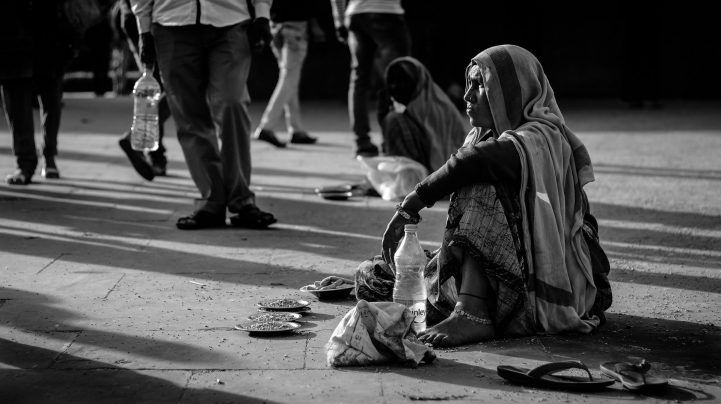About 273 million Indians moved out of multidimensional poverty between 2005-6 and 2015-16, according to a UN report.
The data, released by the United Nations Development Programme (UNDP) and the Oxford Poverty and Human Development Initiative (OPHI), shows that 65 out of 75 countries studied significantly reduced their multidimensional poverty levels between 2000 and 2019.
Multidimensional poverty encompasses the various deprivations experienced by poor people in their daily lives such as poor health, lack of education, inadequate living standards, poor quality of work, the threat of violence, and living in areas that are environmentally hazardous, among others.
Of the 65 countries that reduced their Multidimensional Poverty Index (MPI) value, 50 also reduced the number of people living in poverty.
The largest reduction was in India, where approximately 273 million people moved out of multidimensional poverty over 10 years, the report said.
The report said that four countries—Armenia (2010-2015/2016), India (2005/2006-2015/2016), Nicaragua (2001-2011/2012) and North Macedonia (2005/2006-2011) halved their global MPIT value and did so in 5.5-10.5 years.
About 84.3% of the world's 1.3 billion multidimensionally poor people lived in Sub-Saharan Africa and South Asia. This pre-#COVID19 data from our #MultidimensionalPovertyIndex with @OPHI_Oxford serves as a tool for govts to #BuildForwardBetter: https://t.co/geDVujCgfP pic.twitter.com/pubE67N9ba
— UN Development (@UNDP) July 18, 2020
These countries show what is possible for countries with very different initial poverty levels. They account for roughly a fifth of the world's population, mostly because of India's large population, the report said.
MPIT is the Multidimensional Poverty Index estimate that is based on harmonized indicator definitions for strict comparability over time.
Four countries halved their MPI value. India (2005/2006-2015/2016) did so nationally and among children and had the biggest reduction in the number of multidimensionally poor people (273 million), it said.
The report noted that India saw the most people moving out of multidimensional poverty some 270 million people between 2005/06 and 2015/16.
So decisive change for children is possible but requires conscious policy efforts, it said.
Fourteen countries reduced multidimensional poverty in all their sub-national regions: Bangladesh, Bolivia, the Kingdom of Eswatini, Gabon, Gambia, Guyana, India, Liberia, Mali, Mozambique, Niger, Nicaragua, Nepal and Rwanda.
The report stressed that while the new figures released show that before the COVID-19 pandemic hit, progress was being made in tackling multidimensional poverty. That progress is however now at risk. All the same;
COVID-19 is having a profound impact on the development landscape. But this data - from before the pandemic - is a message of hope. Past success stories on how to tackle the many ways people experience poverty in their daily lives, can show how to build back better and improve the lives of millions, Director of OPHI at the University of Oxford Sabina Alkire said.
The presence of seven African countries among the fourteen countries recorded in the report to have reduced multidimensional poverty in all their sub-national regions offers hope to African people and African leaders that efforts at inclusion yield dividends, steadily, surely. Hopefully, the facts from the report serve to spur African governments and development stakeholders to deepen their efforts towards inclusion and development.










